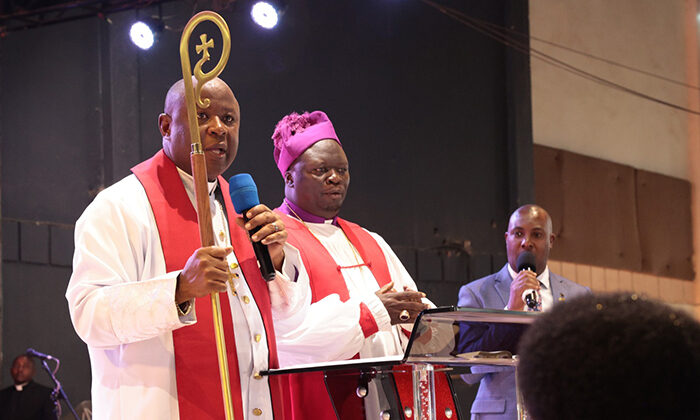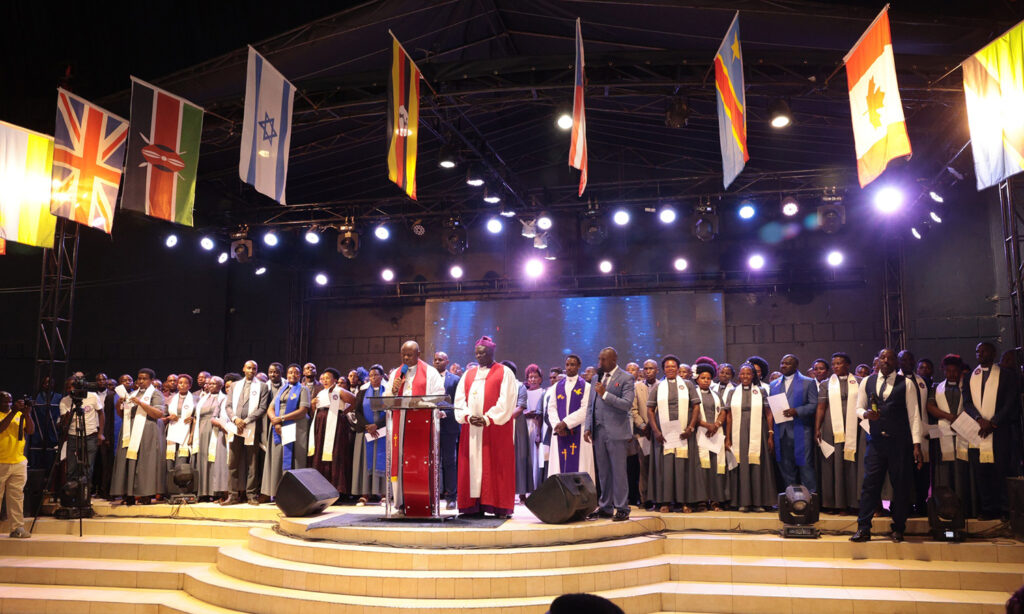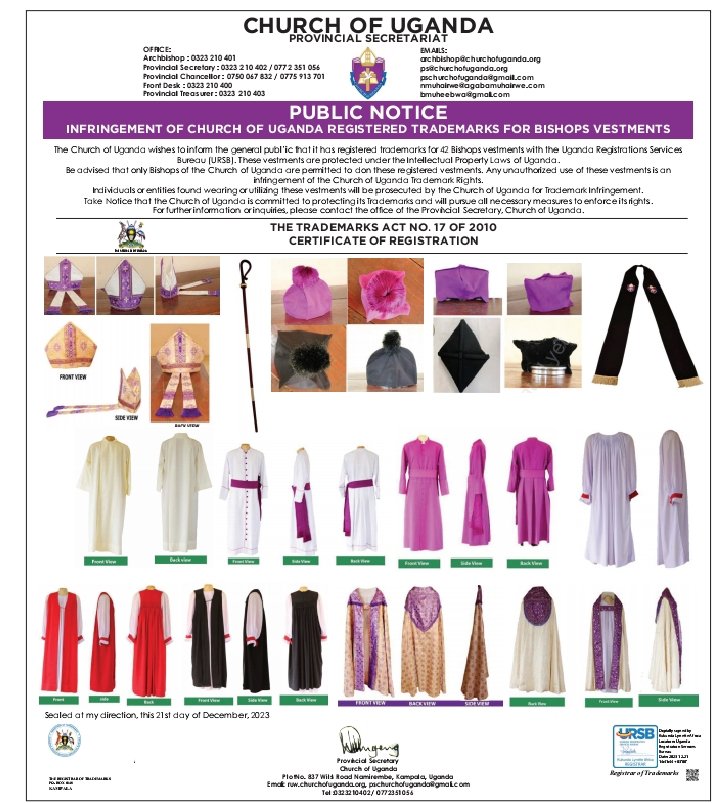
Pentecostal leaders react to move by CoU to trademark liturgical vestments
https://www.ugchristiannews.com/pentecostal-leaders-react-to-move-by-cou-to-trademark-liturgical-vestments/
"We find this unfortunate."
A cross-section of Pentecostal leaders in Uganda have described as “unfortunate” the decision by the Church of Uganda to trademark various vestments and apparel used by the Church in its service to God and His people.
In a statement released by Daystar International Ministries – Mbarara, which has branches across the country, the leadership stated that it is seeking legal counsel to ascertain “the legality of such trade marks.”
“As a Church and ministry, we find this unfortunate and an attempt to detail God’s work,” the statement reads. “We have instructed our lawyers to advice on the legality of such trademarks and mount a challenge against them.”

On 7th July, 2024, the pentecostal ministry led by Bishop Nathan Ibrahim Turyamureeba organised a ceremony where it ordained several Bishops, Reverend and Pastors into service after extensive training.
They were all fully dressed in attire appropriated for their offices. The event was graced by among others, Bishop Patrick Makumbi, founder and Presiding Bishop of the Global Gospel Healing Ministries.
In an article published by the Independent Magazine, Rev. Canon William Ongeng, the Provincial Secretary of the Church of Uganda, was quoted as saying that “over time various denominations, particularly Pentecostals, have been wearing the Church of Uganda’s vestments, which has led to confusion among followers and misuse of these items.”
He stated that the Church of Uganda decided to formally trademark their liturgical attire including Bishop’s Mitre, Rochet, and Chimere, as well as the Alb, Cassock, Surplice, Stole, and Chasuble.
He stated that the Church of Uganda decided to formally trademark their liturgical attire including Bishop’s Mitre, Rochet, and Chimere, as well as the Alb, Cassock, Surplice, Stole, and Chasuble.
Reports show that the design and color of each vestment are “rich in spiritual symbolism, reflecting various elements of Christian faith and worship including seasons, and kinds of service among others.
The vestments also symbolize order, office, and role or function. (i.e., they aren’t supposed to have personalized messages, political messages/symbols, sports or patriotic-related colors/symbols, or iron-on pictures of my children, etc.).
“Wearing the vestments of the Church of Uganda while being affiliated with a different denomination is unacceptable,” South Ankole Bishop Rt Rev Nathan Ahimbisibwe told the Independent Magazine.”
“We encourage other Christian groups to develop their unique attire, as the vestments we have designated are specific to our church and should not be used by others,” he added.
The bishop told the Independent Magazine that the Anglican and Roman Catholic churches each have their unique vestments, and these differences do not cause contention.
According to Uganda Registration Service Bureau, registration of a trademark gives the owner an exclusive right to use the registered mark on the goods and/or services for which it is registered.
At the same time, the owner of a registered mark can sue for infringement of his registration if someone else uses the same or a similar mark on the same or similar goods and/or services for which the mark is registered.
By Ugandan laws, a trademark is valid for seven years from the filing date of the application and may be renewed indefinitely for successive ten year periods upon payment of the prescribed renewal fee.
